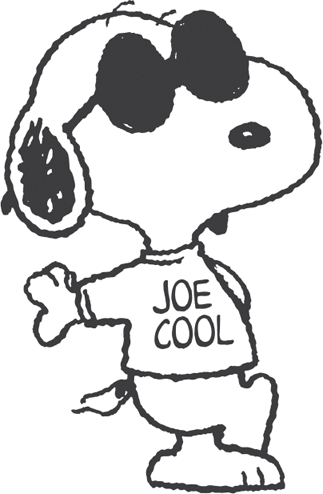FIGURE 1a.1 Snoopy as Joe Cool. Peanuts © 1971. Peanuts Worldwide LLC. Distributed by UNIVERSAL UCLICK. Reprinted with permission. All rights reserved.
One of the most memorable of Snoopy’s many alter egos, Joe Cool introduces the cool irony of masculine detachment into the Peanuts lexicon of political references. While Snoopy showed up on October 4, 1950, only two days after Peanuts began as a comic strip, Joe Cool doesn’t appear until May 27, 1971. Transformed immediately through the simple donning of shades, Snoopy becomes Joe Cool effortlessly: shades on, strike a pose, and—“Voila!”—coolness abounds.
This effortless sartorial transformation enacts the heart of coolness—in Charles Schulz’s beloved Peanuts strip and beyond. As the first clip of Joe Cool’s appearance shows so (ahem) effortlessly, cool enshrines precisely the shunning of effort. Too cool for school, Joe Cool is a man (a boy? a dog? a fantasy?) of pleasure. As the character develops in song and film, this pleasure assumes two primary registers: the sexual and the rebel.
In the first set of lyrics written by Desirée Goyette and scored by Vince Guaraldi, we find Joe Cool “dressin’ up right / Going out to catch a lady to take out tonight.”
1 Of course, this really just means putting on those shades—this is 1971, three decades before the ascendancy of any metrosexual guy. And it isn’t clear whether any of the ladies actually fall for his act. The first one already has a date and snaps, “I’ll catch you later, Jack.”
2 And the second, allegedly successful one agrees to the date only to lure him in for a slap, reminding him that he hasn’t called her in a year or more. But, of course, Joe Cool is cool, girlfriend or not. Image intact: coolness is all the cool guy needs.
FIGURE 1a.2 Joe Cool’s first appearance in Peanuts. Peanuts © Peanuts Worldwide LLC. Distributed by UNIVERSAL UCLICK. Reprinted with permission. All rights reserved.
In the second and third (and final) set of lyrics, Charles Schulz carries this rather comically misdirected sexual bravado to its more clownish ends as Joe Cool finds himself kicked out of both school and job. In the 1972 television special, You’re Not Elected, Charlie Brown, Joe Cool is literally tossed out of school when he cannot do simple addition; in the 1973 television special, There’s No Time for Love, Charlie Brown, he is apparently fired from his job as a supermarket cashier for puerile antics and disdain for the rules. In both of these instantiations, the clownish character of Joe Cool’s coolness comes to the fore: the other children shun him in school; his school notebook binder painfully clamps on his little paw not once, but twice; he squashes the produce in the market; and he cannot bag groceries. But the responses of others seem not to matter. His coolness always saves him, in his own mind, at least. He is, after all, Joe Cool.
The image of coolness that Schulz gives us is thus ambiguous, at best. Always still the charming beagle, Joe Cool offers a glimpse of the pleasures and possibilities of antiestablishment rebellion. When paired with the best-known of Schulz’s creations,
A Charlie Brown Christmas, Joe Cool’s inability to function in the institutions of the School and the Marketplace take on anticapitalist hues. First aired in 1965, this classic of children’s animation continues to air on network television in the United States at least once every year during the Christmas holiday season, making it the longest-running cartoon special in history. The plot is basic: consumerism and the marketing of Christmas have sucked the real meaning out of the holiday. While Schulz’s insistence on leaving a very long quotation from the King James Bible’s Gospel of Luke easily leads audiences to read this as a message from the Religious Right, Schulz himself was explicitly against orthodox religion and the 1965 cartoon precedes Ralph Reed by roughly twenty years.
3 It is the anticonsumerism thread that persists in the comic strip, intensified in the 1972 and 1973 appearances of Joe Cool, where he is described as “workin’ in the supermarket, just like a mule.”
4 Joe Cool is warned to “be careful of the manager, he’s dy-na-mite. / Check each item, get those prices right!”
5 It is the shopping carts that finally smash Joe Cool and wheel him out of the job.
But it’s all cool. Joe Cool shows us how vapid capitalism and its institutions can become.
Or does he?
The original Charlie Brown Christmas included opening and concluding title slides by its corporate sponsor: Coca-Cola.
(And, unsurprisingly, I was unable to secure the rights to that final image.)


